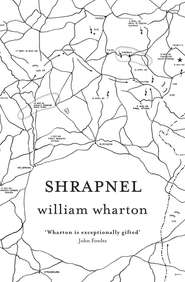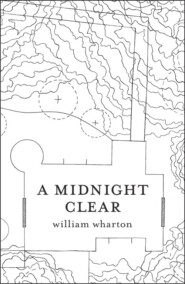По всем вопросам обращайтесь на: info@litportal.ru
(©) 2003-2024.
✖
Dad
Автор
Год написания книги
2018
Настройки чтения
Размер шрифта
Высота строк
Поля
We sit there. Dad still hasn’t been to the hospital; Joan told him there were no visitors allowed. So when I leave, I sneak out the side door and ease my parents’ car out of the patio. It’s a 1966 Rambler, and has all of twenty-five thousand miles on it. Here’s an eleven-year-old automobile in showroom condition. They keep it covered with plastic; even the seat covers are plasticized. It has air conditioning, a radio, power brakes, power steering, the works. It’s like stepping into the past when you drive this car. It drives smooth as hell with automatic drive and is heavily horsepowered for a small car. Dad bought it, when he was still interested in cars, as his final, retirement automobile. He made a gamble on this one, and it’s been a real winner, simple classic lines, square back.
At the hospital, in the lobby, a nice woman tells me how to find intensive care.
Most likely, nobody ever gets used to hospitals, or is comfortable in them, except perhaps doctors or nurses. The vibes are all trouble: pain and death.
But this hospital is somehow different, modern. There’s carpeting, and Muzak playing everywhere. There’s no hospital-white-tile-and-shiny-waxed-floor feeling. It doesn’t even smell like a hospital; more like a Holiday Inn. Even the elevator: little ding when you get in, self-operated; Muzak. Muzak on every floor, same soothing music playing all the time everywhere.
Following signs, I work my way to the intensive care unit. At the desk I identify myself, ask if I can see my mother. They tell me she’s very sick and can’t take excitement. I tell them I’ve come all the way from Paris. There’s a brief conference; it’s decided I can go in but must be very quiet.
I move softly past rows of cubicles. Everybody’s plugged in and taped up, most of them unconscious. This is truly the final stop before the grave, the modern version of an Indian dying house.
I don’t know what to expect; even without heart attacks people change tremendously in two years. It’s always a shock to see somebody this age after some time has past. I know we’re all changing, the kids, Vron, me; but we see each other so often we don’t notice.
I look in and there she is. Probably, since I was a kid, I haven’t seen Mom in bed. I left home for the army at eighteen, and before that I don’t think I ever went into their bedroom, at least not after I was ten. Now I see her there, bed tilted, oxygen tube up her nose, all the monitors, IV, catheters. There’s a computer readout screen over her head showing an ongoing cardiograph, there’s also a little red dot indicating her pulse with a digital readout. She looks like a failed astronaut.
She’s a greenish-white color and her eyes are closed. Her face is a mask.
It’s a strange thing about Mom’s face. It has all the lines and marks of her past expressions, most of these negative. There are hard traces of suspicion, strong lines of dissatisfaction and complaint. They’re deeply incised, even in repose. At the same time, there’s something young about her. She keeps her hair tinted toward black and her hair is husky, hard, thick. So different from Dad. His face is smooth, satin smooth, his hair only white tufts over his ears.
Mother uses a medium amount of makeup, not exaggerated for a woman seventy. She’s never looked her age. I look at her, even here sick, maybe dying, and she doesn’t look much over fifty-five.
I sit down in a chair beside the bed and watch the machines trying to tell me what’s happening. I know they have monitors out there in the central nursing station. I wonder what would bring them rushing in.
I watch the pulse rate and it’s up to 87 down to 83, up to 92. I never knew the pulse varied so much. Could it be because of her heart?
I’m staring at the screen and more or less inside myself, when I hear her voice.
‘You did come, after all. I must really be sick.’
This’s classic Mom. First, recrimination, doubt I’d come; second, self-pity. I lean down and kiss her on the turned cheek.
‘Oh, you’re not so sick, Mom. I came for something else anyway.’
What a stupid thing to say! She might be half dead, but nobody could fool my mother that easily. A person who’s suspicious even about truth is hard to fool.
‘Don’t kid me, Jacky.’
She closes her eyes, then slowly begins her dramatized version of the heart attack. She ought to write soap operas. She can make almost anything interesting and gives herself terrific starring roles.
‘Daddy didn’t know what to do … I’m staying alive by willpower, telling Daddy it’s only indigestion. I’m praying to Saint Jude, patron saint of hopeless cases, when Joan comes in the nick of time and saves my life.’
She grudgingly gives this to Joan, then takes it back by saying the McCarthys, her side of the family, are always good in emergencies, while the Tremonts crack up. Thank God, Joan has good McCarthy blood.
Now there’s the scenario about what the doctors have told her. If they talked to Mother as much as she says, she couldn’t find time to sleep and nothing else in the hospital would get done.
And they’re all so impressed with her strength; she has the willpower of somebody half her age. Mother probably considers this an insult; nobody half her age has her willpower.
But she does admit she’s scared.
Next we start the planning, stage-managing.
‘Don’t say anything to Daddy about a heart attack! Just tell him it’s something with my “insides”.
‘He’ll understand that, Jacky, because I had the hysterectomy. You tell him it’s only something went wrong with my “insides”.’
She likes that idea.
‘And whatever you do, Jacky, don’t mention cancer, you know he’s scared to death of cancer.’
I don’t know what cancer has to do with the whole thing but I nod. I’ll talk to Joan and we’ll figure how we can handle Dad. There’s no way to keep it from him that Mother’s had a heart attack. Having a heart attack is not like having a hysterectomy. When you’ve had a heart attack, even if you survive you’re a coronary patient for life.
But there’s no sense saying these things to Mom now. I stay on for a while and watch. She drifts in and out, sometimes thrashing in her sleep. Once, she pulls off the monitor and three nurses come dashing in. Boy, are they ready for action!
Mother is an extremely active person, even in her sleep; she’s nervous and moves quickly. The nurse tells me it’s the fourth time she’s torn off the monitor. This time they do everything but nail it to her arm; gluing and taping from elbow to wrist. The IV tube is another whole problem.
When I leave, I’m surprised I don’t feel any tendency to cry. Mostly, I feel discouraged and peculiarly restless. Seeing her down that way is like looking at an old, familiar tree that’s been struck by lightning and is stretched across the path.
I go back determined to put on the brightest face possible. In our family my role is the joker, the comedian, the clown.
I know what’s expected; you get a feeling for a role like this. I park Dad’s car up the street, then walk to the house. Usually we park this car on the driveway or in the patio. Dad meets me at the door.
‘Where’s the car, Johnny?’
‘Well, Dad, I visited the hospital. When I got there, Mother was all packed, ready to go. The doctor said she ought to take a vacation and rest up, so she’s on her way to Palm Springs. I gave her the car and took a bus back.’
Now, this is cruel. Dad’s believing me. He’s glad Mother’s well, but he’s crushed she’s going to Palm Springs without him. Joan pushes past me and looks down the street.
‘Jack, you’re impossible! The car’s right down there, Dad. You have a real screwball for a son.’
It gets us past the hard point anyway. I have some time to pull myself together.
The TV’s on and I settle onto the gold chair, Mom’s chair. They’re watching a game between the Angels and Oakland. Oakland’s winning, of course. Dad realizes I’ve been to the hospital and he’s trying not to make a big thing of it.
‘How’s she look to you, Johnny? Does she seem all right?’
Then, with hardly a pause.
‘When’s she coming home?’
‘She’s fine, Dad, but she’ll be in the hospital for a while. She said to say hello and sends you a big kiss.’
He doesn’t ask what’s the matter with her. I don’t think he wants to know. I look over at Joan on the couch and she puts her finger to her lips.
We watch silently. Oakland’s ahead by five.
Joan stands quietly, points to the first back bedroom and leaves. I think it’s called a back bedroom because it’s behind the living room, kitchen and bath; she means the side bedroom.
There’s another bedroom further back; the real back bedroom. This house is built in an L, the bottom part facing the street. This is the living-and-dining room. The long part of the L extends on the left toward the rear, with a patio on the right. Along this are the kitchen and bathroom, back to back; the middle, or first ‘back’ bedroom, then the real back bedroom at the end of the hall. Actually, there’s another bedroom in the garden; this is sometimes called the back bedroom, too. My folks’ house has three back bedrooms, no other kind.











